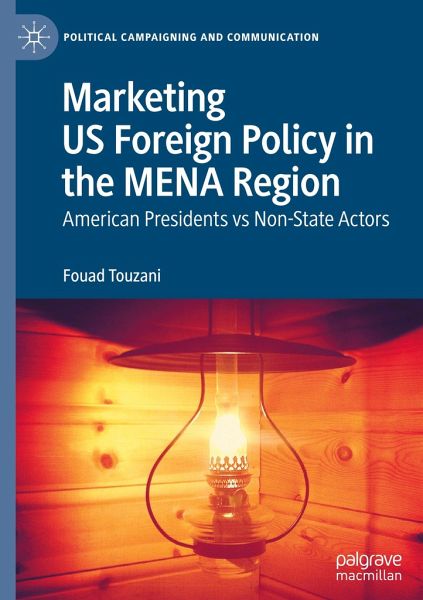
Marketing US Foreign Policy in the MENA Region
American Presidents vs Non-State Actors
Versandkostenfrei!
Versandfertig in 6-10 Tagen
98,99 €
inkl. MwSt.
Weitere Ausgaben:

PAYBACK Punkte
49 °P sammeln!
The book examines how US media, public opinion, interest groups and think tanks respond to US Presidents' attempts to market their foreign policies in the MENA Region. The scope of the analysis extends from the war on terror to the so-called Arab Spring. It focuses on some case studies including the Arab-Israeli conflict and the Iran nuclear deal. The book fills a gap in the literature pertaining to analyzing US foreign policy in the MENA area from a political communication perspective rather than from IR or a political-theory angle, which remains the dominant literature. In so saying, the boo...
The book examines how US media, public opinion, interest groups and think tanks respond to US Presidents' attempts to market their foreign policies in the MENA Region. The scope of the analysis extends from the war on terror to the so-called Arab Spring. It focuses on some case studies including the Arab-Israeli conflict and the Iran nuclear deal. The book fills a gap in the literature pertaining to analyzing US foreign policy in the MENA area from a political communication perspective rather than from IR or a political-theory angle, which remains the dominant literature. In so saying, the book will appeal to students, researchers as well as thinks tanks and policy makers.














